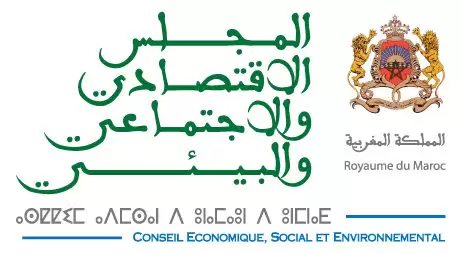This opinion-based report follows on from the Council’s earlier work on advanced regionalization and territorial governance. It examines the State’s mission and the efforts of different role-players at the territorial level and concludes with recommendations to add impetus to territorial development by rethinking the roles of the State and its institutions in relation to local actors.
This opinion-based report follows on from the Council’s earlier work on advanced regionalization and territorial governance. It examines the State’s mission and the efforts of different role-players at the territorial level and concludes with recommendations to add impetus to territorial development by rethinking the roles of the State and its institutions in relation to local actors. The report was adopted by a majority vote at the Council’s General Assembly of 27 April 2023.
The reforms of the advanced regionalization agenda give true expression to the public authorities’ ambition to provide the country with a model of territorial governance that uncovers the opportunities and challenges for our country and accounts for the needs and priorities of Moroccans. Eight years after this Royal project was launched, significant progress has been made on the path to the decentralization and modernization of the State’s administrative system.
Despite this record of achievement and based on the analysis and assessment of the actors and experts interviewed, the current territorial governance model appears, nevertheless, to be still far from the ambition to make Morocco’s regions an “anchor for development”. More efforts still are needed to deliver the expected impact, both in reducing territorial and social inequalities and in promoting the regions’ contribution to national wealth.
This situation can be explained by several weaknesses and malfunctions that continue to hamper territorial development in our country. The most important of these weaknesses are:
- An unfinished territorialization of public action, mainly due to overlapping powers of local and regional authorities and their limited operational capacity.
- The multiplicity of players in the territorial ecosystem and the insufficient convergence of efforts, which undermines the performance of public investment.
- Slow pace of implementation of the administrative deconcentration charter, depriving local and regional actors of the human, technical and financial resources they need to carry out effective and efficient execution of their responsibilities.
- Poor involvement of the private and third sectors in the process of developing the region’s strategic vision for investment.
- A clear lack of qualified human resources at the local level, which undermines the effective participation and impact of local authorities in the development process.
- Slow pace at which the public sector’s digital transformation is taking place and its impact on the quality of public service delivery to users at the local level.
With this diagnostic the CESE calls for a progress assessment of the advanced regionalization project, with the participation of relevant key role-players and stakeholders. The findings of this assessment, the Council underlines, can stimulate debate for a collective and concerted action perspective, in terms of both the approach and the deployment of this project.
The Council also calls for an in-depth review of the State’s missions at the territorial level, to create an enabling environment for the effective and efficient implementation of the State’s action, while maintaining a strong sense of responsibility and striking a harmonious equilibrium between decentralization and deconcentration, as ways of organizing public services. It is within this context that the following recommendations are made:
- Revisit the organic laws governing local and regional authorities for a more accurate clarification of their respective areas of remit, by precisely defining the scope of work of these administrative units regarding the territorial extent of their powers (own powers, shared powers or transferrable powers).
- Establish greater clarity in the relationships between the actors in the territorial ecosystem (Wali and governor, the presidents of the three territorial levels – regions, provinces and municipalities – and the decentralized services of the State) for better coordination and synergy of action.
- Lay down the principle of the delegation of powers from the ministerial departments concerned to the regions, pending the revision of the organic laws, while linking this transfer to objective and achievable criteria.
- Establish a precise, achievable and enforceable timetable for the transfer of powers and decision-making authority from central government to decentralized government departments.
- Promote the development of horizontal (intermunicipal cooperation) and vertical (public-public partnerships) cooperation amongst the various territorial levels, to ensure optimum pooling of resources and ensure the delivery of high-quality public services.
- Make the application of an ex-ante evaluation of all public investment projects, with the view to clarify their objectives and impacts (economic, social and environmental) and anticipate any potential risks.
- Provide for optimal territorial redeployment of public companies and establishments as part of the ongoing public sector reform.
- Ensure complementarity between the competences devolved to public establishments with a territorial remit and those transferred to deconcentrated administrations, as part of the ongoing public sector reform, by taking care to develop new, flexible management models adapted to the different needs of citizens in their territories.
- Increase the attractiveness of the local civil service in terms of the skills required, to ensure optimum deployment of advanced regionalization projects.
Improve public service delivery by expediting the digitization process, particularly by setting up an inclusive territorial information system that facilitates interoperability amongst all actors within the territorial ecosystem.
